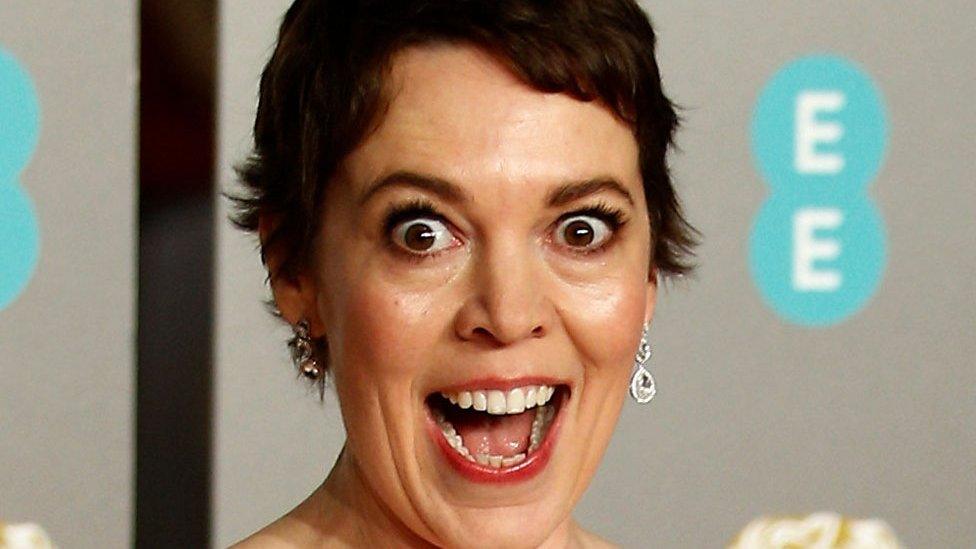Bafta film awards 2020: Joker leads nominations amid diversity row
- Published
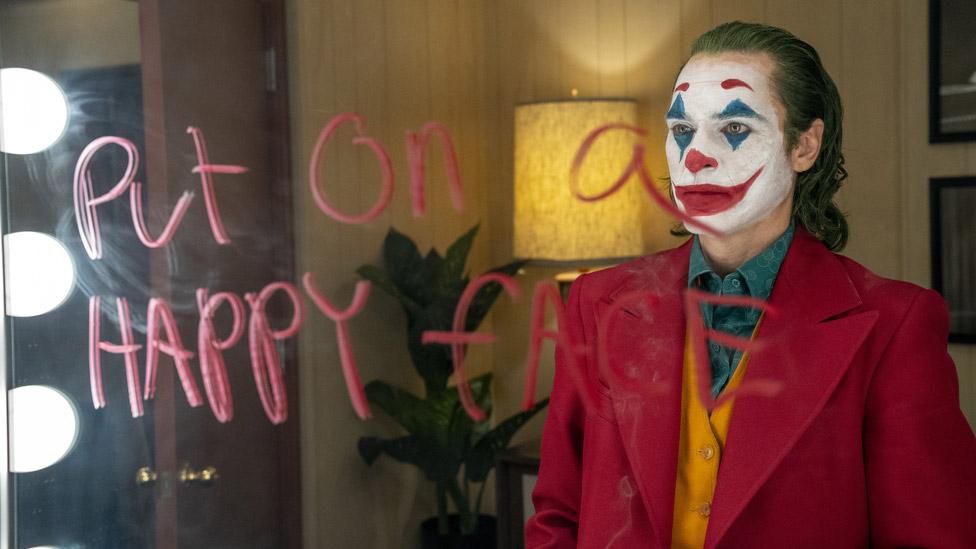
Joaquin Phoenix is up for best actor for starring in the origin story of Batman's nemesis
Joker leads the Bafta film nominations with 11, but there is criticism that the acting nominees are all white.
Joker is followed by Martin Scorsese's The Irishman and Quentin Tarantino's Once Upon A Time... In Hollywood, which have 10 nominations each.
Scarlett Johansson and Margot Robbie are up for two acting awards each.
But no female directors were nominated for the seventh year in a row. Bafta boss Amanda Berry said she was "very disappointed" by the lack of diversity.
The leading Bafta nominees
11 - Joker
10 - The Irishman
10 - Once Upon a Time… in Hollywood
9 - 1917
6 - Jojo Rabbit
Joaquin Phoenix will be the favourite for best actor for his role in Joker, which tells the origin story of Batman's nemesis and has divided some critics and audiences.
It's 11 years since Heath Ledger won a posthumous Bafta for playing the same character in The Dark Knight.
Joker director Todd Phillips said: "Recently, when Joaquin and I were in the UK, the love we felt for Joker was palpable and I just want to thank my British colleagues for connecting with the film on a cellular level."
Phoenix will face competition from Taron Egerton, who played Sir Elton John in Rocketman, as well as Leonardo DiCaprio for Once Upon A Time..., Adam Driver for Marriage Story and Jonathan Pryce for The Two Popes.
Margot Robbie is up against herself in the best supporting actress category for roles in Bombshell and Once Upon A Time...
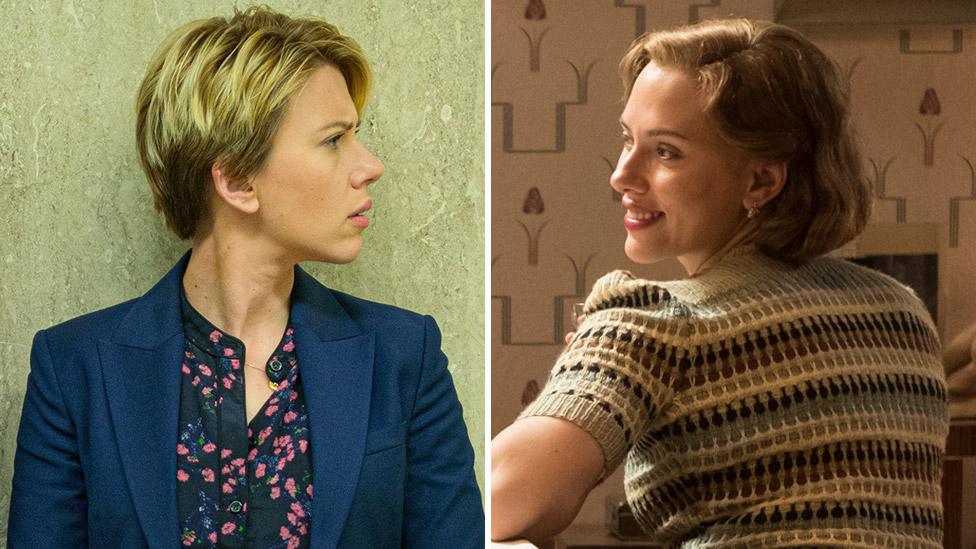
Scarlett Johansson in Marriage Story (left) and Jojo Rabbit
That category also includes Scarlett Johansson for Jojo Rabbit, while she is also up for best actress for her role opposite Driver in Netflix's divorce drama Marriage Story.
The other best actress nominees are Renee Zellweger for playing Judy Garland in Judy, Jessie Buckley for Wild Rose, Charlize Theron for Bombshell, and Saoirse Ronan for Little Women.
But there is no room for Little Women film-maker Greta Gerwig - or any other women - in the best director category.
Acting categories 'very white'
Told on BBC Radio 4's Today programme that the acting list "seems very white", Bafta CEO Berry replied: "I'm going to totally agree with you. That's how I felt when I first saw the list.
"This isn't being disrespectful to anybody who has been nominated because it's an incredibly strong list this year.
"If you look at the director category, where I hoped we would see at least one female director, that is an incredibly strong list when you have people like Martin Scorsese and Quentin Tarantino and Sam Mendes, who have got multiple nominations in the past."
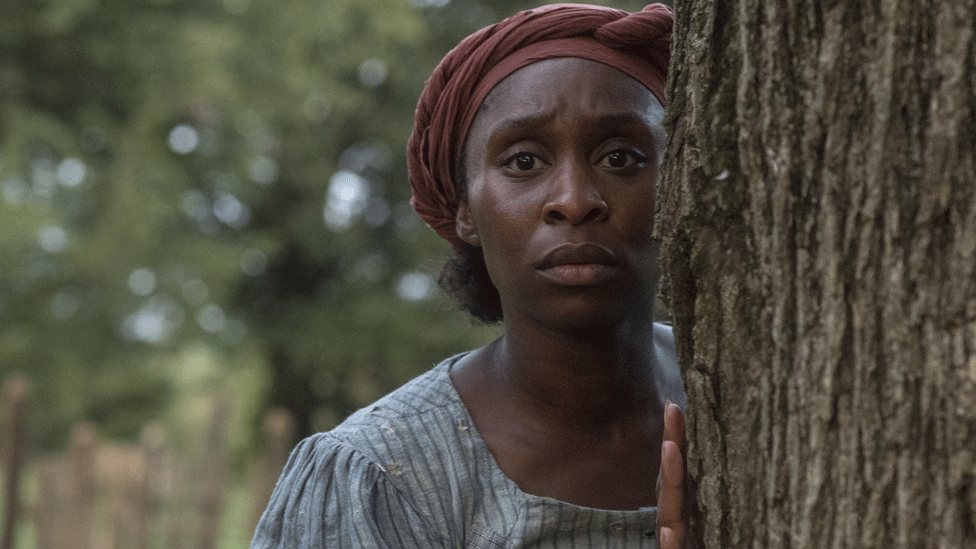
There was no room for Cynthia Erivo for playing slave-turned-abolitionist Harriet Tubman
Gerwig did pick up a nomination for best adapted screenplay, however.
The actors who were overlooked included British star Cynthia Erivo, who was recently nominated for a Golden Globe for her role in Harriet, a biopic about Harriet Tubman's escape from slavery.
The lists drew strong criticism on social media, with #BaftasSoWhite trending. Director Rapman, whose controversial film Blue Story was overlooked except in the rising star category, wrote: "The lack of of black faces is ridiculous."
Allow X content?
This article contains content provided by X. We ask for your permission before anything is loaded, as they may be using cookies and other technologies. You may want to read X’s cookie policy, external and privacy policy, external before accepting. To view this content choose ‘accept and continue’.
Allow X content?
This article contains content provided by X. We ask for your permission before anything is loaded, as they may be using cookies and other technologies. You may want to read X’s cookie policy, external and privacy policy, external before accepting. To view this content choose ‘accept and continue’.
Allow X content?
This article contains content provided by X. We ask for your permission before anything is loaded, as they may be using cookies and other technologies. You may want to read X’s cookie policy, external and privacy policy, external before accepting. To view this content choose ‘accept and continue’.
Bafta's deputy chairman Krishnendu Majumdar said the lack of female nominees in the best director category was an "industry-wide problem" and that Bafta was "fiercely doing something about it" with its schemes like Elevate.
Marc Samuelson, chair of Bafta's film committee, said the issue was "infuriating".
He added: "We can't make the industry do something, all we can do is encourage and push and inspire and try to help people coming in at the bottom end."
Allow X content?
This article contains content provided by X. We ask for your permission before anything is loaded, as they may be using cookies and other technologies. You may want to read X’s cookie policy, external and privacy policy, external before accepting. To view this content choose ‘accept and continue’.
Allow X content?
This article contains content provided by X. We ask for your permission before anything is loaded, as they may be using cookies and other technologies. You may want to read X’s cookie policy, external and privacy policy, external before accepting. To view this content choose ‘accept and continue’.
Metro film critic Larushka Ivan-Zadeh told BBC News that the lack of a nomination for Gerwig was "a real omission", while the main acting categories could have recognised Erivo, The Farewell star Awkwafina, and Us actress Lupita Nyong'o.
"Certainly when the list of actors came up, and it was wall to wall white faces for this year, it was very disappointing," Ivan-Zadeh said.
"Margot Robbie and Scarlett Johansson both had two nominations each - well done for them - but it just felt like you're using up spaces that could be perhaps used for different and more diverse performances. And it's not that the performances aren't there."

1917, directed by Sam Mendes (centre) met the diversity standards to be nominated for best British film
Last year, Bafta introduced new criteria for two awards "to encourage better representation and increased inclusivity across the British industry".
It said films would not be nominated for best British film or best British debut unless they met at least two of four "diversity standards", which cover on-screen talent, storylines, creative leadership, training and underserved audiences.
This year's best British film category includes Rocketman, Sam Mendes's World War One drama 1917 and The Two Popes, starring Jonathan Pryce and Sir Anthony Hopkins as a pair of pontiffs.
The BFI, which oversees the diversity standards scheme, does not publish details of which criteria each film met, but confirmed all nominated films in the two categories met the diversity criteria. Those criteria do not extend to the acting and directing awards.
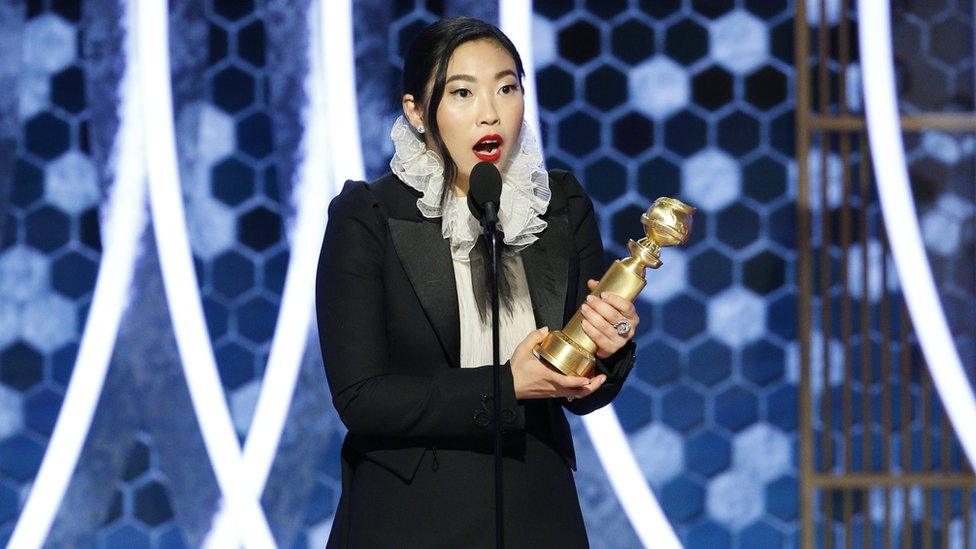
Awkwafina, whose real name is Nora Lum, won a Golden Globe on Sunday
There was more diversity on the shortlist for the rising star award, which was announced on Monday.
Awkwafina - who won a Golden Globe on Sunday - was nominated alongside Fighting with my Family's Jack Lowden, Booksmart's Kaitlyn Dever, Waves actor Kelvin Harrison Jr and Blue Story star Michael Ward.
Ward has said his nomination was a vindication of the film following controversies around its screenings.
The gang drama was temporarily withdrawn from Vue cinemas after seven police officers were injured in a disturbance at Star City in Birmingham in November, where there were reports of youths with machetes.
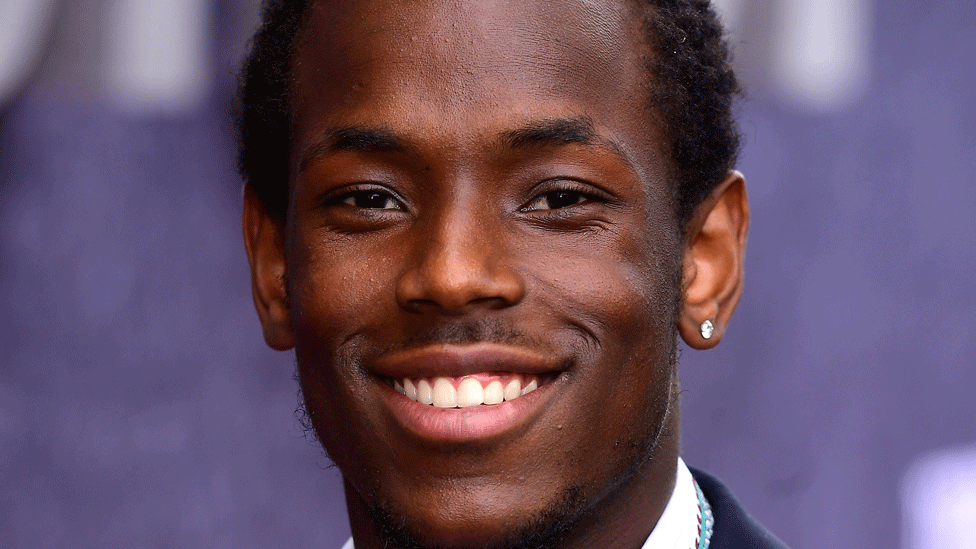
Ward was a model for online retailers such as JD Sports before turning to acting
Winners and nominees in most categories are voted for by 6,700 Bafta members, who are industry professionals and creatives around the world.
"In many areas, our voting membership is more diverse than the industry," a Bafta statement said. "However diversity continues to be an issue that needs to be tackled urgently within the industry, and Bafta continues to work hard to increase opportunities for underrepresented groups through all of our activities."
The ceremony will take place on 2 February at the Royal Albert Hall in London, hosted by Graham Norton.
This year has also seen the introduction of a category for best casting director - the Baftas' first new category for more than two decades - following a campaign last year to recognise that arm of the film industry.

Follow us on Facebook, external, or on Twitter @BBCNewsEnts, external. If you have a story suggestion email entertainment.news@bbc.co.uk, external.
- Published2 February 2020
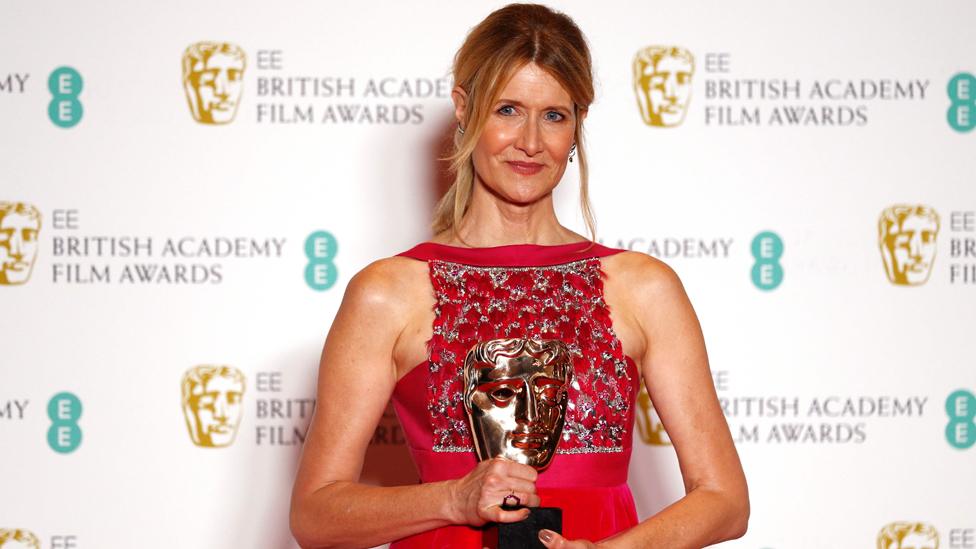
- Published7 January 2020
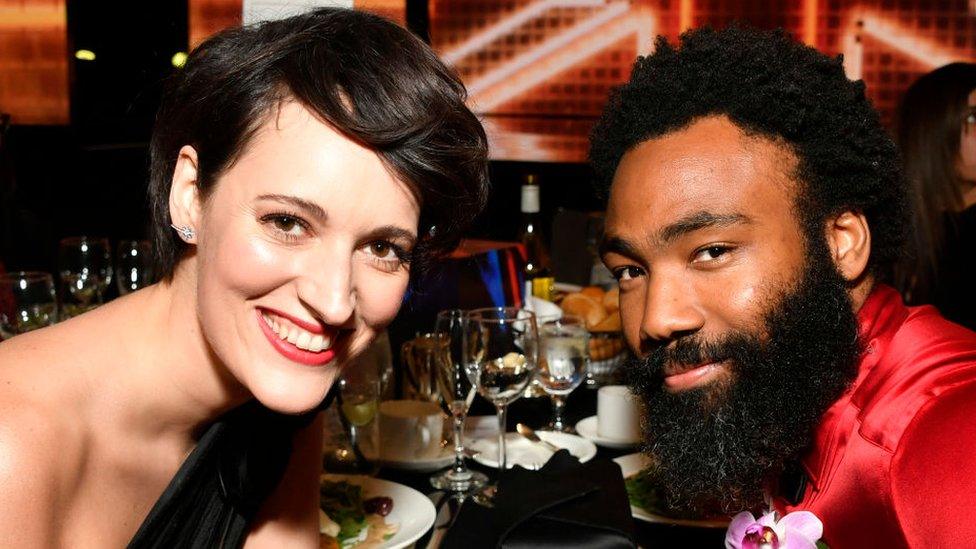
- Published5 October 2019
- Published2 September 2019
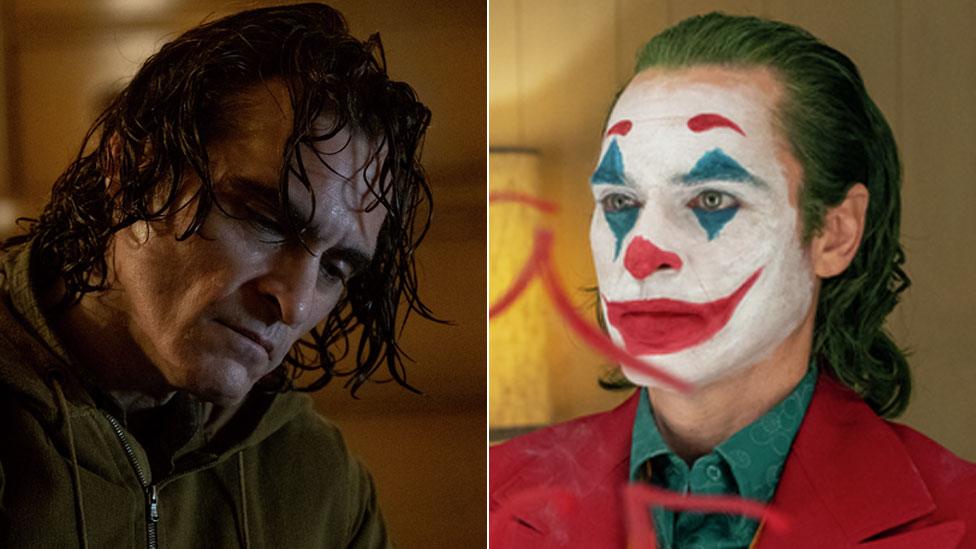
- Published6 January 2020
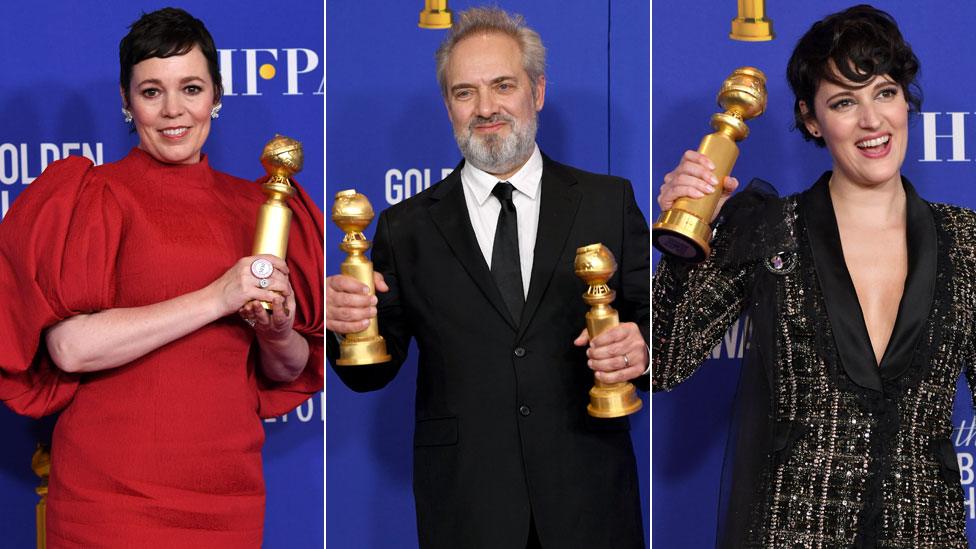
- Published10 February 2019
